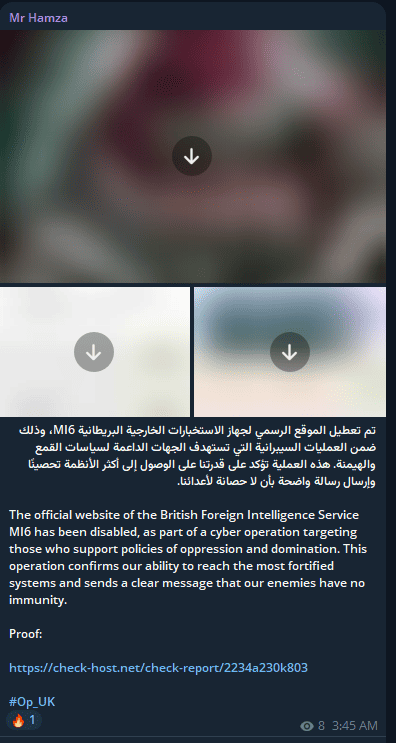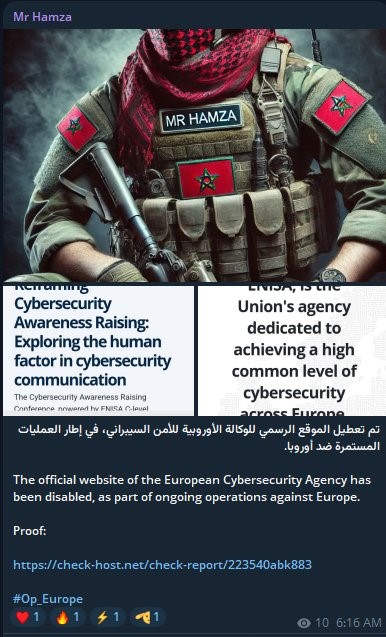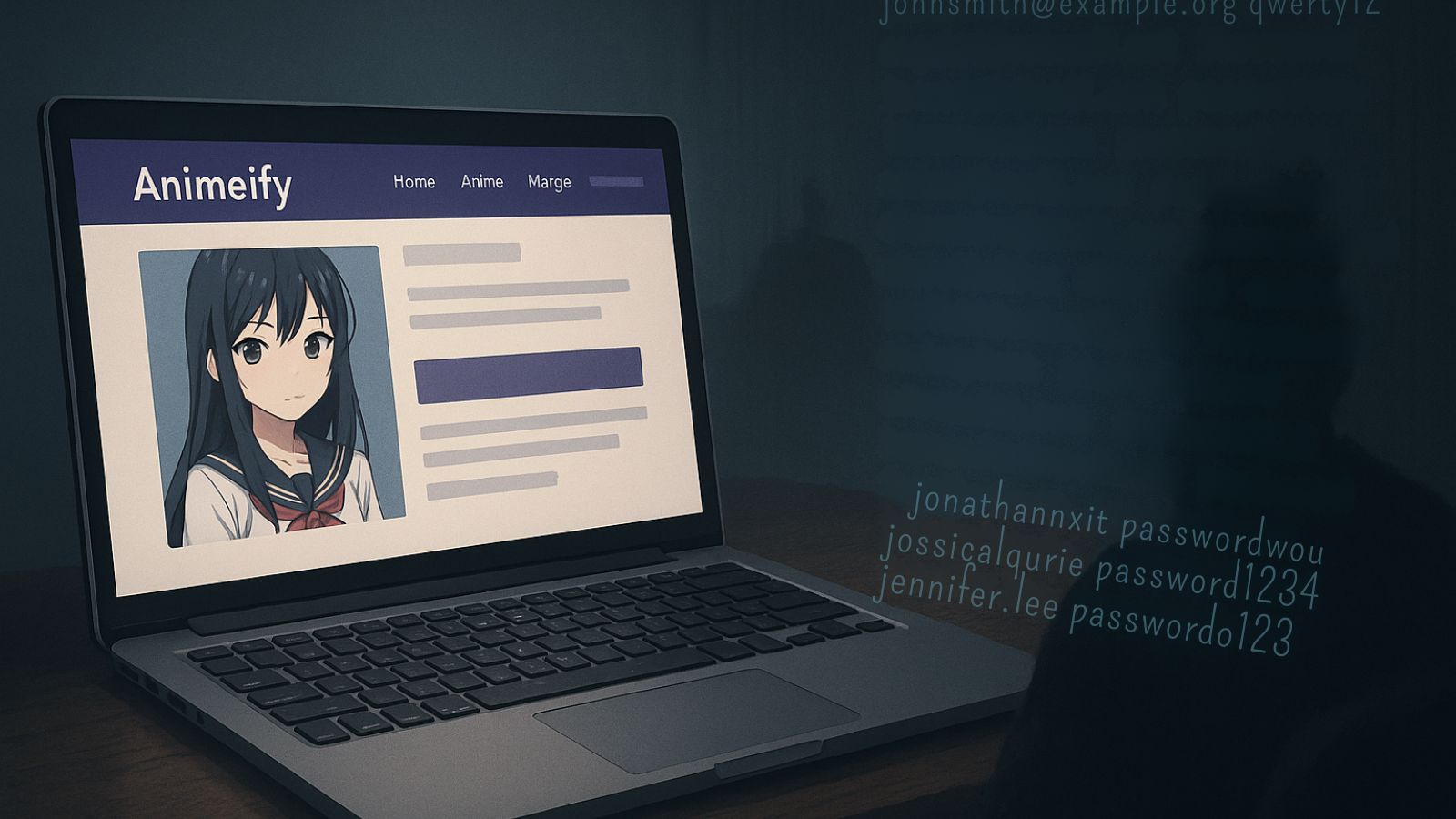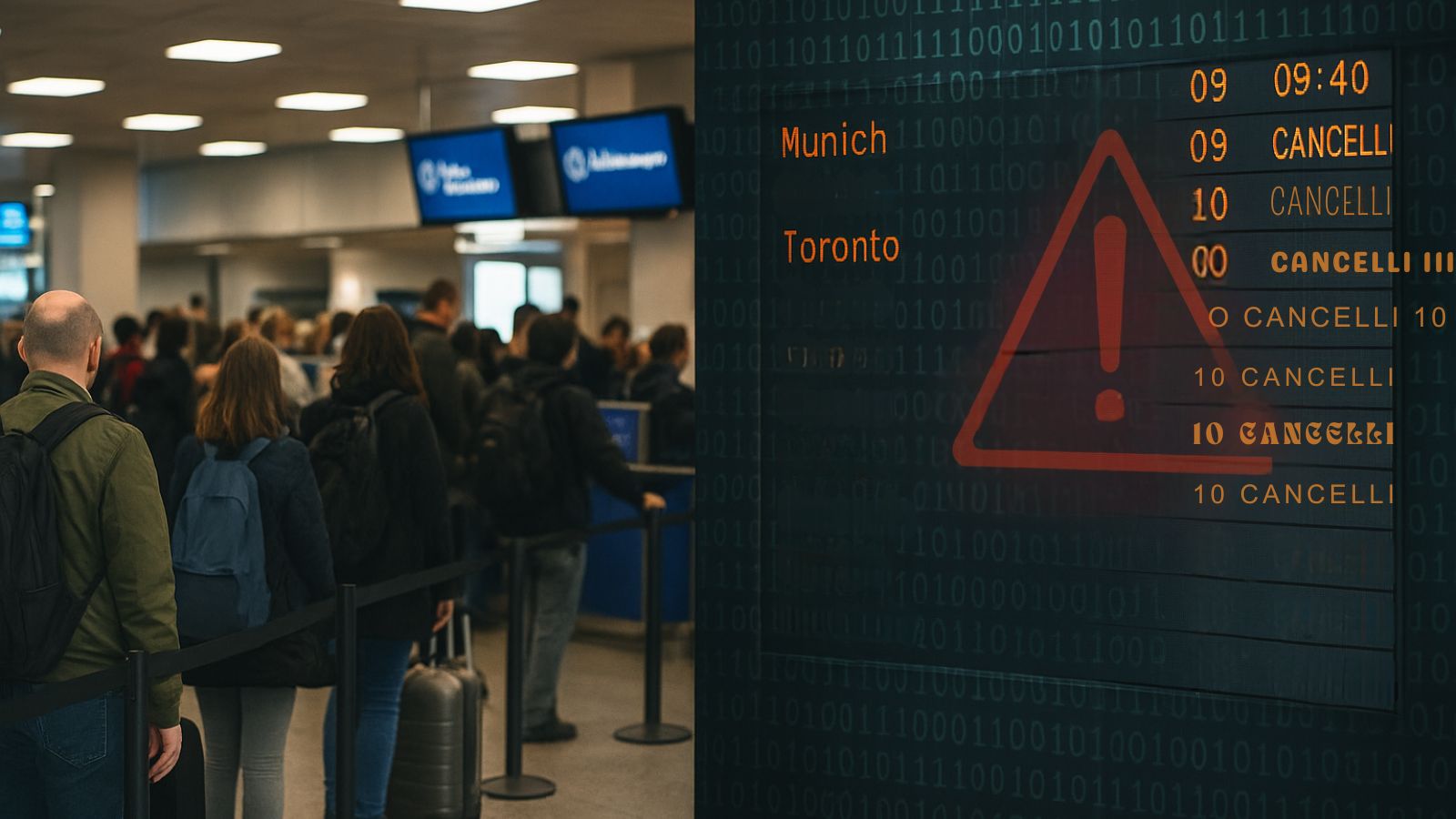
Pro-Palestine Hacktivist Group ‘Mr. Hamza’ Claims MI6 DDoS Attack to Show Power
- The hacktivist group known as Mr. Hamza recently claimed to have launched DDoS attacks on the U.K.’s MI6 and Europe's ENISA.
- Both government threat intelligence portals were operational upon later verification.
- Hackers started targeting the agencies aimed at showing their prowess in attacking any entity.
A threat actor named Mr. Hamza recently claimed to have launched cyberattacks on the U.K.’s Secret Intelligence Service, also called MI6, and the European Union Agency for Cybersecurity (ENISA).
Mr. Hamza announced launching Distributed Denial-of-Service (DDoS) attacks targeting the two agencies, allegedly disabling their official websites. Falcon Feeds noted that both the government agency websites were accessible at the time of tweeting about them.
Clarifying their reason for the DDoS attack on MI6 in a campaign they named Op_UK, Mr. Hamza wrote, “The official website of the British Foreign Intelligence Service MI6 has been disabled, as part of a cyber operation targeting those who support policies of oppression and domination.”
This attack, they added, was to show how capable they were to reach any target and impact their digital infrastructure. They posted proof of the effectiveness of their attack with a Check-Host.net link that verifies whether a site is reachable or not.
In a similar message, Mr. Hamza claimed to have launched a DDoS attack on ENISA in a campaign named Op_Europe.
The threat intelligence platform SOCRadar, which offers contextual data, categorized Mr. Hamza as an Islamist-oriented hacktivist group. They have been said to be operating since October 3, 2024, and have expressed anti-Israel sentiments through campaigns against Israel and its supporting nations.
They have collaborated with pro-Palestinian and pro-Russian hacktivists to launch coordinated cyberattacks.
In addition to launching DDoS attacks, they sell malicious tools on the dark web marketplace and have claimed to have leaked their targets’ data. Researchers suspect their origin is Morocco.










